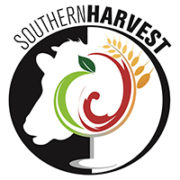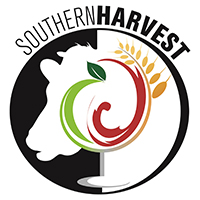To help set the course for Australian agriculture, the Rural Industries Research and Development Corporation (RIRDC) will release five new research reports from its National Rural Issues program in Canberra next month. The National Rural Issues program aims to consider themes that cover multiple industries and in areas where industry and government leaders need independent advice to help inform their roles.
On Wednesday 5 August three research areas will be released including:
independent analysis on the possible opportunities geographical indications of origin can provide to help promote the growing trend of the provenance of food;
insights into some of Australia’s most effective and innovative farmers on what drives their business performance; and
the untapped use of collective bargaining in the agricultural sector.
Two other pieces of research will be released on Friday 14 August; one that synthesises the big-picture 15 to 20 year agricultural sector megatrends, and the other considers factors that will influence Australian farm competitiveness in the global marketplace.
Authored by some of Australia’s leading rural industry experts from organisations like the CSIRO, the Australian Farm Institute and various universities, RIRDC Managing Director Craig Burns says the reports highlight lessons which will help inform the future positioning of the Australian agricultural sector.
“This research provides valuable insights and evidence on a range of factors impacting rural industries, which aim to help stimulate the thinking required to support good industry and government policy development,” said Mr Burns.
“Importantly, the research reinforces the major opportunity currently facing Australian rural industries is to diversify exports and grow new markets, particularly in Asia.”
“We hope the launch of this research will trigger discussions about the future for our rural industries among a wide range of people including researchers, policy makers, producers, business people, Government and rural communities.
“Research such as the Collective Bargaining research provides a good foundation to inform the pilot programme that the Australian Government’s Agricultural Competitiveness White Paper identifies that RIRDC will deliver. This pilot is currently being designed to provide knowledge and materials on cooperatives, collective bargaining and innovative business models to Australian primary producers,” said Mr Burns.
Report summaries in order of release
‘Australian Farm Business Performance – insights from effective farm business managers’ contributes to an improved understanding of farm business performance across selected Australian agricultural industries. It provides insights into how highly effective producers analyse and innovate in their businesses to achieve their goals.
Geographical Indications of Origin have so far only been used for wine in Australia. However the ‘Provenance of Australian food products – is there a place for Geographical Indications?’ argues that there is reason to seriously consider potential advantages of such a tool for regional development. For example this tool has facilitated the promotion of premium wine and associated tourism in Queensland, a state not normally associated with wine production.
‘Collective Bargaining in the Agricultural Sector’ examines why Australian farmers seem to underutilise the provisions of competition law which would enable collective action in purchasing and selling. The Report analyses the factors impacting the uptake of collective bargaining opportunities across a wide range of food products. It suggests how farmers could improve their bargaining position in the future.
‘Assessing the competitiveness of Australian agriculture’ is an investigation of the current understanding both in Australia and internationally of the factors contributing to the competitiveness of a national agriculture sector. The research considers the potential development of a competitiveness indicator or index as a tool to inform decision-making to enhance agricultural competitiveness.
‘Megatrends impacting Australian agriculture over the coming twenty years’ is designed to help Australia’s agricultural sector anticipate and pro‐actively plan for change, domestic and global, over the coming 20 years.
Launch Event Details
Event One: Farm Business Performance | Geographical Indications | Collective Bargaining
Venue: The Boat House by the Lake (West End Room), Barton, ACT
Date: Wednesday, 5 August 2015
Time: 3pm – 5:30pm, followed by drinks and canapés
Event Two: Competitiveness of Australian Agriculture | Megatrends
Venue: The Boat House by the Lake (West End Room), Barton, ACT
Date: Friday, 14 August 2015
Time: 7:30am – 10:00am, includes a plated breakfast


Leave A Comment